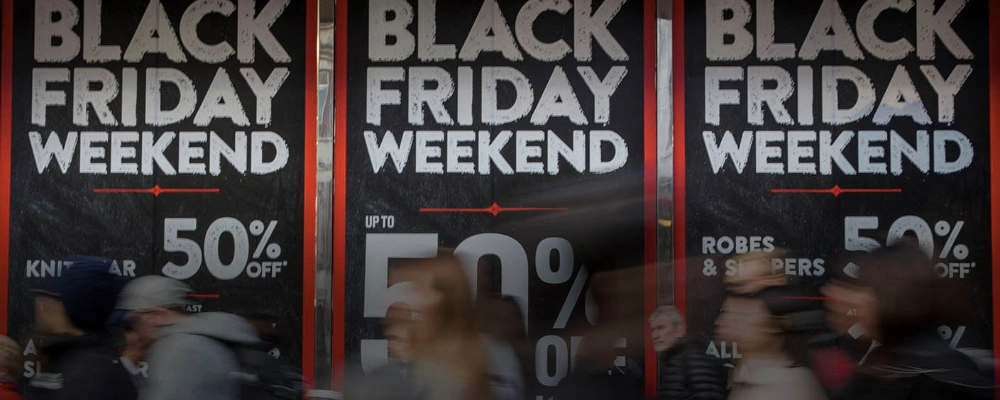Black Friday: Where Does the “Black” Come From?

“Black Friday” – why is Black Friday black?
It’s hard to say since when, but we can safely say that for a long time—if not a very long time—the word “black” has been linked with something negative, like the Black Death or Black Tuesday in 1929. And yet, when it comes to Black Friday, it’s hard to find negative connotations. So how is it then—why is Black Friday… black?
In the depths of the Internet, you can find several different explanations of the term’s etymology. What’s clear, however, is that the origin of this name has nothing to do with racism. There is, on the other hand, a fairly popular theory that the word “black” comes from a financial usage in English: black ink means being in the black (profit), as opposed to red ink for negative values. According to this theory, “black” would be tied to recording turnover and profits during this period… But is that really how it is—or rather, how it was?
Here’s another theory that seems to have much stronger… historical footing.
Much—perhaps everything—points to the first “Black Friday” taking place in 1869. A certain financier—James Fisk—attempted to corner the gold market, which triggered panic and ultimately led to a market collapse. It was the first market crash recorded in the U.S., and for many decades it was called Black Friday.
Many years later came another crisis. On October 29, 1920, the New York Stock Exchange crashed as the stock bubble burst, and since it was a Tuesday it was called Black Tuesday. This crisis set off the Great Depression, which in turn eased the rise of fascist movements in Europe and Asia and, as a result—at least in large part—contributed to the outbreak of World War II.
Given the above, it’s not hard to guess why anything “black” tends to carry a negative ring. Except that with Black Friday it’s not like that… So why?
Let’s travel in time and space—to Philadelphia, 1960. Right after Thanksgiving that year, huge crowds of bargain hunters from the Philadelphia area flocked into the city for pre-Christmas deals, practically clogging the city center. Police officers had to work 12-hour shifts to control the crowds and the flood of cars on a scale they hadn’t seen before. Adding fuel to the fire were the annual Army–Navy football games, which always drew throngs of fans. Officers described the Friday afternoon like this: “it looks as if the entire state drove into the city at once.” Chaos and disarray reached a level hard to describe, and the police dubbed the phenomenon—understandably from their point of view—Black Friday. Not everyone was unhappy with the traffic chaos, overworked police, and the crowds, though. Especially the… crowds.
Local entrepreneurs and retailers quickly saw opportunity rather than problems—an opportunity for their businesses and stores. Many of them swiftly launched clearance campaigns: and that’s how Black Friday, as we know it today, was born.
Word of the Philadelphia retailers’ success spread across the states, and by the 1980s the tradition of Black Friday rivaled Thanksgiving itself in popularity.
Since the late 1990s, we’ve seen shoppers steadily shift from traditional brick-and-mortar stores to online shopping. Hence, in 2005 the term Cyber Monday appeared, referring to a special day when online stores offer exceptional discounts and markdowns.
And how is it today? Today, customers don’t have to limit themselves to just one day—most stores prepare special offers available for an entire week, starting with the famed Black Friday. It’s no different with us. You’re invited! See what we’ve prepared for you—visit www.insta360.pl and treat yourself to the gift you deserve, at a price like never before!
